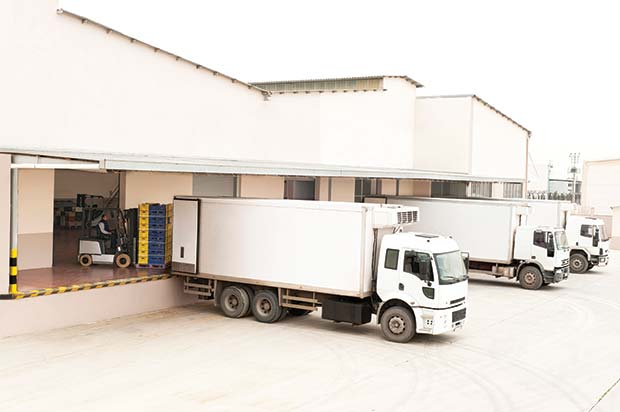Forklift operations in warehouse loading bays can pose a number of potential safety risks. Laura Nelson, Managing Director of leading workplace transport training accrediting body, RTITB, outlines some commonly encountered risks in loading bays, and how they can be minimised through accredited training for operators, staff and supervisors.

“Loading bays demonstrate a number of significant risks for both forklift operators and pedestrians and require careful management,” explains Laura Nelson. “One of the most effective ways to help reduce the risk is through accredited training for the forklift operator and the manager or supervisor.”
Varying docks and vehicles with different specifications pose difficulties among operators if they have not been trained on the particular equipment they are required to operate.
“Specific Job and Familiarisation Training ensure that operators are fully trained on the actual type of equipment they are required to operate” says Laura Nelson. “This is especially important for visiting or temporary operators, who may not be familiar with the equipment or the operation.”
A lack of direct communication between drivers and warehouse staff can also contribute to safety risks when pedestrians and forklifts are required to work in the same areas.
“It is important for forklift operators to be aware of their environment, including pedestrians and hazardous conditions. During wet weather, for instance, water can collect in the loading bay, causing a slip hazard, and forklift operators, as well as pedestrians, must be aware of that,” explains Laura Nelson. “Through Familiarisation Training, operators become accustomed to the workplace as well as the equipment, putting the skills that they have learnt into practice in real life situations, to raise awareness of potential risks and avoid accidents in the future”.
Another significant cause for loading bay accidents can be down to a lack of supervision or poor supervision of the operation.
“Supervision can help to minimise bad practice and ensure that all staff are adhering to regulations” says Laura Nelson. “RTITB accredited supervisor training helps to ensure that forklift operators and loading staff, including temporary staff, are being properly supervised and protected from potential accidents. It is also down to the managers and supervisors to make sure that all staff have the correct training and qualifications.”
All of these issues can be solved and / or avoided through proper risk assessment and prevention tactics.
Initial training and refresher training help to ensure that forklift operators and supervisors are aware of the risks involved with loading bays and carry out operations safely.
Specific Job and Familiarisation Training are part of the HSE (Health and Safety Executive) guidance on forklift operator training and are particularly important to train operators for specific applications, such as loading bays in the warehouse.
“Warehouses and equipment vary between operations and the pressures of the working day can often lead to carelessness and accidents,” says Laura Nelson. “To prevent accidents from occurring within loading bays, a combination of thorough accredited training and supervision is the most effective option.”
Tel: 01952 520200




Comments are closed.